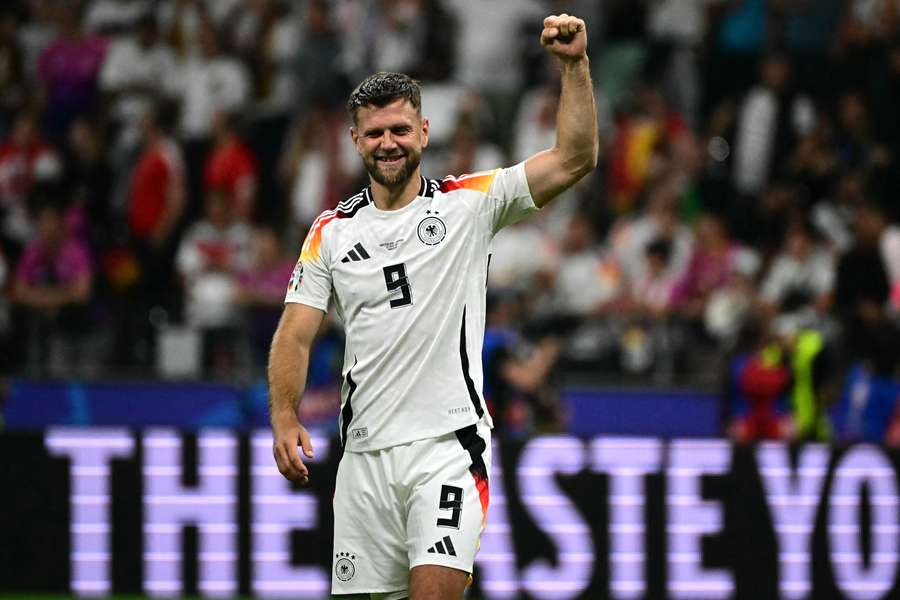Striker choice an issue for Germany as Denmark await in last-16

From Berlin to Braunschweig, the question on every German fan's lips is who will start up front on Saturday, with Kai Havertz being preferred for the three Group A games and Niclas Fullkrug coming off the bench to deliver much-needed goals.
The latter laid down a marker in the final group game.
With Germany a goal down to Switzerland and looking like they would have to settle for second place, Fullkrug scored a typically powerful stoppage-time header to snatch a draw and top spot in the standings.
For all his qualities, Havertz has not scored in open play yet at the Euros, and against a Danish defence that ground its way to draws against England, Slovakia and Serbia, the power and physicality of Fullkrug may prove the best option.
Some observers believe that Havertz and Fullkrug could be deployed together.
"I can imagine Havertz playing one position further down (the pitch) ... he would be good as a false nine," German World Cup winner Olaf Thon, who works as a pundit for German broadcaster Sport1, told Reuters.
Nagelsmann will also have to choose a replacement for centre back Jonathan Tah, who picked up his second yellow card of the tournament against the Swiss, the coach replacing him on the hour mark with Nico Schlotterbeck.
The Danes, who made the semi-finals of Euro 2020 where they lost to England after extra time, have been nothing like the swashbuckling team of that tournament, scoring two goals and conceding two in three draws.
Coach Kasper Hjulmand is still struggling to find the balance between defensive solidity and attacking verve that has eluded him, but the introduction of winger Andreas Skov Olsen at half-time in the final group game may be an indication that he is willing to take more risks.
Denmark will also be missing a key player with midfielder Morten Hjulmand suspended, and either Thomas Delaney or Christian Norrgaard will slot in alongside Pierre-Emil Hojbjerg and behind Christian Eriksen in midfield, where Hjulmand expects the match to be won and lost.
"We have to close down the central space, at the same time as we have to play football. Germany are one of the hardest-pressing teams at the Euros, they win the ball back very quickly, so it's important that we can play the ball around in there," the Denmark coach said.



